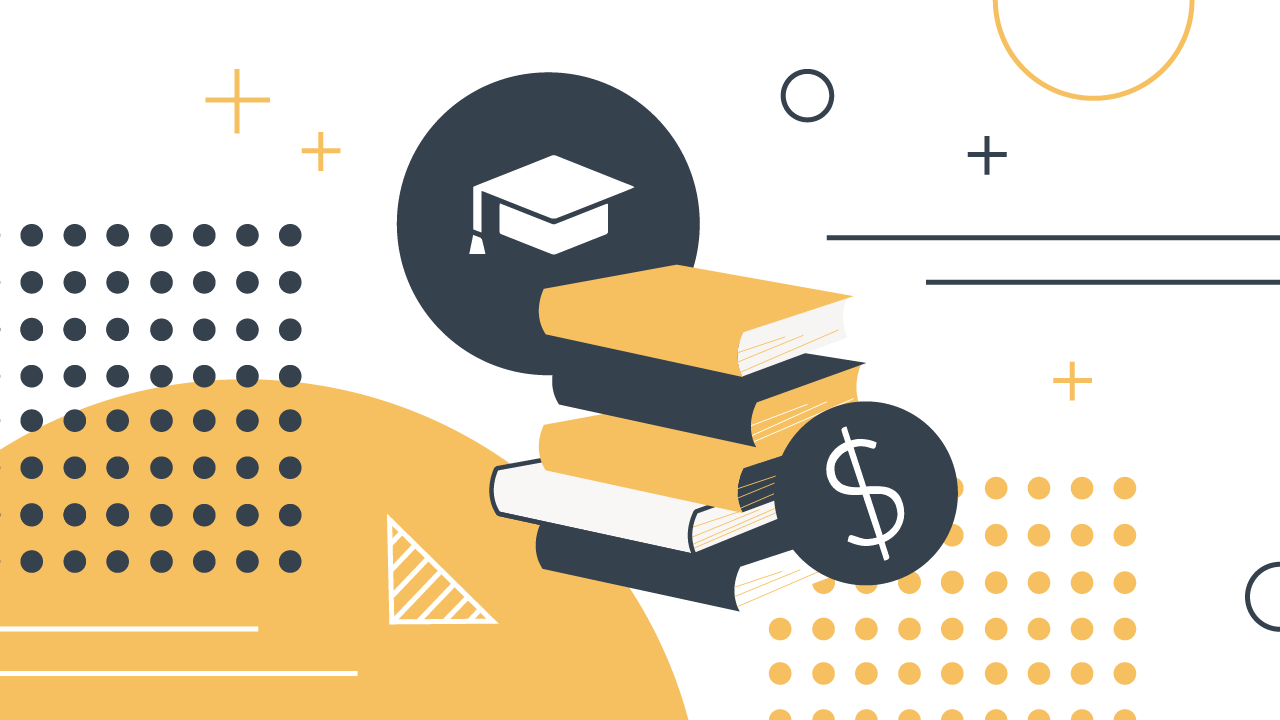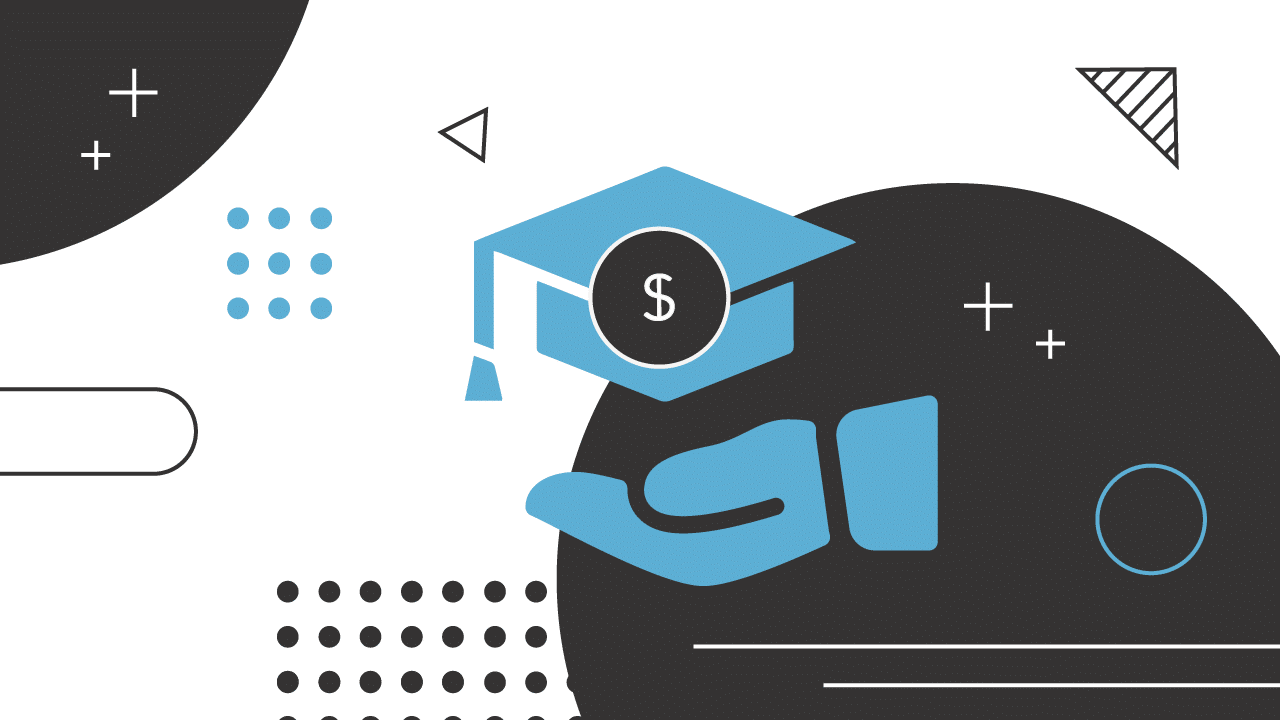
Source: The College Investor
There are more student loan relief options for teachers than almost any other career in America. Teachers have a lot of levers to pull when it comes to lower payments and student loan forgiveness options.
That’s awesome – but it can also be confusing. With so many programs, and so many requirements, student loan forgiveness for teachers is a complicated subject (get it… subject…sorry, lame teacher joke).
If you’re a teacher, you have four main programs/ways to get student loan forgiveness. You also have a secondary avenue for student loan forgiveness based on your repayment plan.
Given that the average teacher only makes around $66,397 according to USA Facts, and that the average student loan debt is $37,088, so any help that teachers can get is essential.
Let’s break down the four main ways to get student loan forgiveness for teachers, what the other options are, and how to get professional help if you want it.
Lower Student Loan Payments
Given that teachers are constrained by salaries more than other professions, ensuring that they have a manageable repayment plan is key. Student loan repayment plans go hand-in-hand with loan forgiveness programs, so choosing the right plan is essential.
If you want to lower your monthly student loan payment, look at income-driven repayment plans like IBR.
Note: SAVE is currently blocked by pending litigation. PAYE and ICR may return in December 2024.
If you want to change your monthly loan payments, simply go onto StudentAid.gov and select a new plan. You can also run a student loan calculator and see your options.
Option 1. Public Service Loan Forgiveness (PSLF)
Public Service Loan Forgiveness (PSLF) is one of the top ways to get student loan forgiveness. This program allows you to get complete Federal student loan forgiveness after 120 qualifying payments.
What’s great about this program is that it offers the most options for teachers – you don’t have to be at a qualifying Title 1 school. Any teacher at any school counts. In fact, any worker at a school counts (librarian, teacher’s aid, principal, janitor, etc.).
There are three major requirements for PSLF:
- Certified Employment For 120 Payments – You can find the employment certification form here.
- Direct Loans – Other loan types (such as FFEL) don’t count.
- Qualifying Repayment Plan – The qualifying repayment plans for PSLF are the Standard 10-year plan, IBR, PAYE, SAVE/RePAYE, ICR, and certain payments made under the graduated plan.
Option 2. Teacher Loan Forgiveness
Teacher Loan Forgiveness is a program that was started before PSLF, and allowed teachers at qualifying schools to have up to $17,500 of your Direct or FFEL loans forgiven after 5 years.
This program has many more stipulations that PSLF, and also forgives a smaller amount. The major requirements for Teacher Loan Forgiveness are:
- 5 Complete & Consecutive Years At A Qualifying School – You can find the list of qualifying schools here. The five years must be completed after 1998.
- Certain Teachers Get Up To $17,500, Others Up To $5,000 – If you’re a highly qualified secondary math or science teacher, or special education teacher, you can receive up to $17,500 in forgiveness.
Once you’ve completed your 5 consecutive years, you can apply for forgiveness under the program.
Note: You cannot combine both PSLF and Teacher Loan Forgiveness.
A circumstance where it might not make sense is if you don’t plan on working for 10 years. If you meet the 5 year criteria, and don’t plan on teaching any longer, Teacher Loan Forgiveness could make sense.
Another circumstance where it could make sense is if you haven’t consolidated your loans and have FFEL loans. Since FFEL loans don’t qualify for PSLF, you could do Teacher Loan Forgiveness first, then consolidate your loans and go for PSLF.
Option 3. Perkins Teacher Loan Forgiveness
If you have Perkins Loans, you can get forgiveness up to 100% of your loan balance if you teach full time at a low-income school or teaching certain subjects.
If you have Perkins Loans, you can see your entire loan balance forgiven over 5 years. The great thing about this program is that it gives forgiveness in increments, so even if you don’t make it 5 years, you can at least see some of your loan balance disappear.
Here’s how it breaks down:
- Year 1: 15% Forgiveness
- Year 2: 15% Forgiveness
- Year 3: 20% Forgiveness
- Year 4: 20% Forgiveness
- Year 5: 30% Forgiveness
This program also has a lot of stipulations. Here are the key requirements:
- Must Teach At A Low Income School or Certain Subjects – You can find the list of qualifying schools here.
- The Qualifying Subjects Include – math, science, foreign language, bilingual studies, and others that have been determined to be in shortage in your state.
- Private Schools Potentially Eligible – If your school is a 501(c)(3) non-profit, it is eligible under this program.
The difficult part of Perkins loans is that they are administered by your college where you received the loan. In order to apply for forgiveness, you need to reach out to your loan servicer or the financial aid office where you received the Perkins Loan.
Note: Perkins Loans stopped in 2017. It’s pretty rare for a teacher to still have these types of loans.
Option 4. State-Based Loan Repayment Assistance Programs
45 states and the District of Columbia all offer state-based student loan repayment assistance programs. These programs are designed to help states staff teachers in areas or programs where they have shortages.
We have a complete list of state-based student loan forgiveness programs here: Student Loan Forgiveness Programs By State.
It’s important to note that, while you may qualify for multiple programs, you cannot overlap programs. For example, if you qualify for a state-based program, you cannot qualify for PSLF at the same time – you would need to do it sequentially.
That’s why it’s important to look at the value of the state-based program and your own situation prior to signing up for any program.
Secondary Ways To Get Student Loan Forgiveness For Teachers
Beyond these student loan forgiveness programs, there are “secret” student loan forgiveness options that most teachers don’t realize. These are secondary ways to get loan forgiveness if something doesn’t work out with the above programs (for example, you might stop teaching or working before you qualify).
This “secret” is that all income-based repayment programs (IBR, PAYE, SAVE, ICR) all include student loan forgiveness on any remaining balance after the repayment period (typically 20 or 25 years). These programs are automatically part of your repayment plan, and you don’t have to do anything to sign up (other than continue to maintain eligibility on the repayment plan).
So, if you somehow don’t qualify for one of the forgiveness programs listed above, hope is not lost. It will just be a longer process, but you can still potentially get loan forgiveness.
How To Get Professional Help With Your Student Loans
It’s important to note that you can do everything with your student loans yourself for free. StudentAid.gov has a lot of great resources and online applications where you can apply for these programs. However, some people may want to pay for professional help with the student loan debt.
If you don’t qualify, refinancing your student debt presents an alternate opportunity to save thousands. Credible enables you to fill out one form and look at personalized offers from multiple lenders.
If you want to speak to a professional, consider hiring a CFP to help you with your student loans. We recommend The Student Loan Planner to help you put together a solid financial plan for your student loan debt. Check out The Student Loan Planner here.
Final Thoughts
Student loan forgiveness for teachers is a real thing. Teachers have more options for student loan forgiveness than pretty much any other profession. If you’re a teacher, you need to be taking advantage of these programs to get out of student loan debt.
It’s essentially free money you’re ignoring by not taking action. If you need help, reach out! There are lots of ways to get help to ensure you get the student loan forgiveness you deserve.



